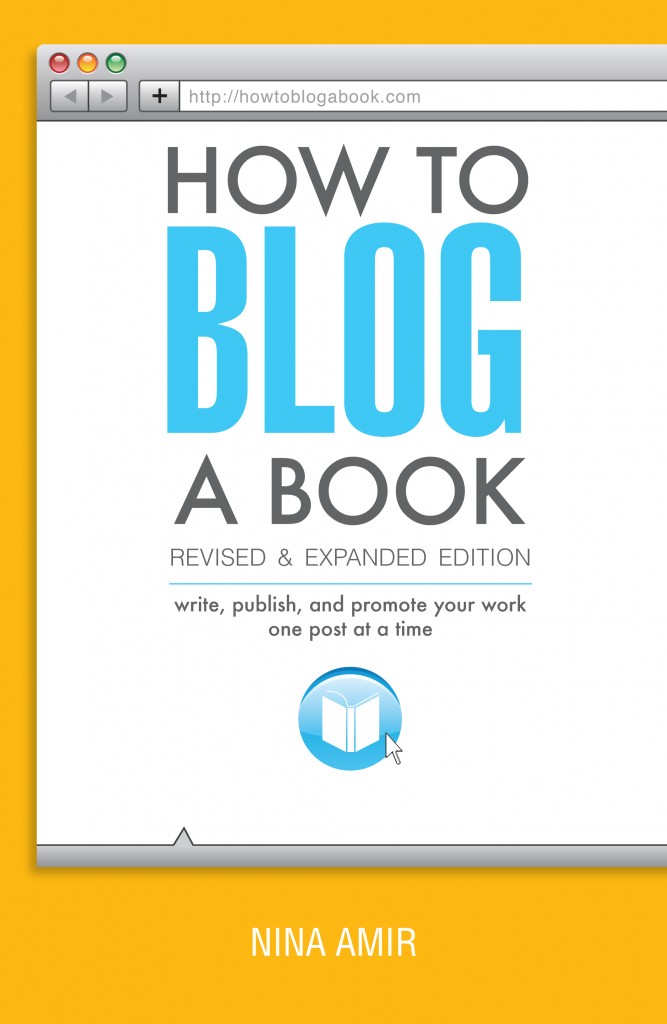Maybe you dream of landing a traditional book publishing deal. You want your successful blog or blogged book to serve as a beacon to an agent or a publisher. Or, if you don’t get discovered, you want your query letter and book proposal accepted by a literary agency or publishing house. You hope the great content and traffic you’ve generated on your blog or by blogging your book will achieve this goal.
But what does it really take for a blogger to land and agent or a publisher? In this post, an adapted excerpt from the newly released How to Blog a Book Revised and Expanded Edition, two literary agents offer their answer to this question.

One of the questions I am asked most often is “What are agents and acquisitions editors looking for in terms of blog stats and social networking numbers?” In other words, what type of platform must you build before an agent will seriously look at you and your blog? The answer varies significantly from agent to agent and from editor to editor (especially depending on the size of the publishing company for which they work).
I asked two agents who represent a fair number of bloggers for their input on this subject. According to Kate McKean, vice president and literary agent at Howard Morhaim Literary Agency, Inc., “The same things that make a writer in any form attractive to agents and editors make a blogger attractive: a strong voice, a well-thought-out project, a marketable project, and an engaged readership. The benefit bloggers have over an off-line writer is (hopefully!) a dedicated following already in place that can be tapped when the book hits the shelves.”
Your Idea Must Make Sense as a Bog and a Book
To convince an agent or acquisitions editor your blog makes a good book idea, however, ensure your idea “makes sense both on- and off- line,” recommends McKean. “Does the idea actually translate to print, or is it too ephemeral? Will it withstand the lengthy book-production timeline, or is it only fresh online in the moment? Agents and editors agree—any blog project must make undeniable sense as a book project, period.”
Share Your Stats
When you write your query and proposal, do so just as if you were proposing a “normal” book. After all, you are an aspiring author and a writer. You also are a blogger, though. “Bloggers must share their metrics—their site traffic, social media stats, and/or significant press mentions or clippings. In terms of metrics, agents and editors want to see average monthly page views and average monthly unique visitors over time, preferably accounting for more than six months of data collecting,” reports McKean. Reiterating similar information presented in this book, she adds, “Don’t say ‘hits.’ Hits are meaningless.”
Agent Ted Weinstein, founder of Ted Weinstein Literary Management, cautions bloggers not to get distracted by trying to reach a certain number of unique readers, page views, or followers. “An author who is eager won’t wait until they cross some threshold of followers, and there isn’t some arbitrary number which is a binary switch for an author’s potential,” he says.
Yet, he concludes that “tens of thousands of monthly visitors is okay; hundreds of thousands is better” for your blog. On Twitter, Instagram, and Tumblr, “tens of thousands minimum. Everything else— regular writing in other outlets, public speaking, etc.—is even better, but that’s not specifically about blogging.”
Know Your Genre
McKean explains that when agents and editors evaluate an author’s platform, the necessary numbers vary by genre. “Thirty thousand average monthly unique visitors might be great for a lifestyle blog, but it’s not much for a viral content/humor blog. And any one of these platform elements may be more important in one genre or another. A memoirist/blogger may do great on the speaking circuit but have low Instagram numbers because her demographic doesn’t use Instagram.
Agents and editors take all numbers and stats together and measure it against what’s important to the audience of that particular project. There’s no one magic number for any platform.”
Basically, you can take all these numbers with a grain of salt and set about blogging a successful book or creating a popular blog. I didn’t have tens of thousands of anything when I landed my book deal for How to Blog a Book. I did have five blogs at the time (with cumulatively more than tens of thousands of unique visitors). I also had a medium-sized social media platform and was a public speaker on my topic. I had a timely idea that worked online and off as a book as well as a growing readership.
 Produce Good Content…Period
Produce Good Content…Period
If you are concerned that an agent or publisher won’t want to represent you because you have blogged your book (rather than planning to book your blog), here’s what McKean had to say: “I don’t see the difference here, because I don’t believe the reader would see the difference.
That’s what matters most. If it makes a difference for the author in how she writes the content, and one way works better than the other, then she should go with what produces the best content, period. In either case, the publisher is going to require that some content be created or held back that is exclusive to the book, so whether that happens by design or by chance from the author’s point of view, it doesn’t matter.”
For more information on blogging books, click here.

Leave a Reply